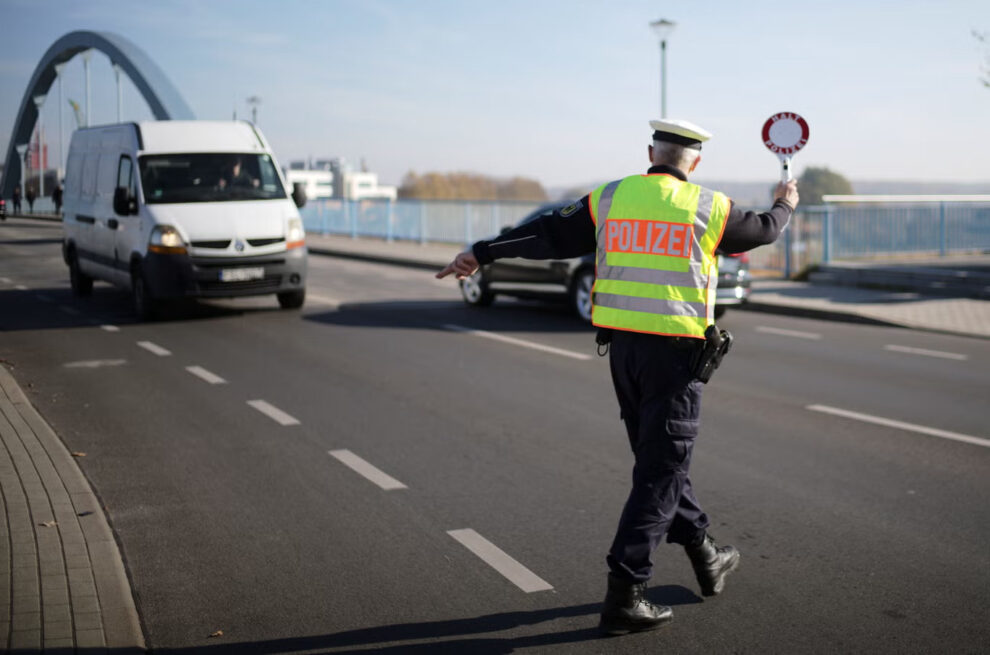Germany announced Wednesday it will increase police patrols along “smuggling routes” on the border with Poland the Czech Republic in an effort to prevent more migrants from entering the country.
The new measures would begin immediately, said Interior Minister Nancy Faeser. The announcement came a day after police raids in Germany found more than 100 Syrian citizens inside apartments searched in connection with a smuggling ring.
Faeser did not offer any details on how many more border police officers would be deployed but stressed that no fixed border checks would be installed as Germany has been doing along the border with Austria since 2015. In order to introduce such controls, Germany would have to notify the European Commission.
Faeser said the new border controls would take place in close cooperation with Poland and the Czech Republic, and will be in addition to mobile police patrols that have already been checking cars crossing the border or people trying to enter Germany by foot.
“We must stop the cruel business of smugglers who put human lives at risk for maximum profit,” Faeser said.
Many migrants from countries like Syria, Afghanistan, Turkey and elsewhere have been trying to get to Germany to apply for asylum. Cities and communities across Germany have been sounding the alarm about the rising number of people coming to Germany, saying they are running out of space to accommodate them and provide kindergarten and school places.
This year, more than 220,000 people have applied for asylum in Germany in the period from January to August. In all of 2022, about 240,000 people applied for asylum. Those numbers are still a far cry from 2015-16, when more than 1 million migrants applied for asylum in Germany.
However, in addition to migrants, Germany has also taken in more than 1 million Ukrainians fleeing Russia’s brutal war on their country.
About one quarter of all migrants who reach Germany come with the help of smugglers on dangerous routes across the Mediterranean Sea and through forests along the Balkans route, Faeser said. They usually pay thousand of dollars to reach Germany.
However, even if migrants get stopped on the border by police because they don’t have valid entry documents, they can still come to Germany if they apply for asylum.
“We want to prevent evasive movements by smugglers through flexible and mobile checks at changing locations,” Faeser said. “At the same time, we ensure that the controls have as little impact as possible on people, commuters and commerce in everyday life.”
Faeser also pointed out that “for a significant reduction of irregular migration, a joint European asylum system remains the decisive step,” meaning that the EU’s external borders must be strictly checked so that migrants cannot even reach countries like Germany, located in the center of the bloc.
Source : Independent















